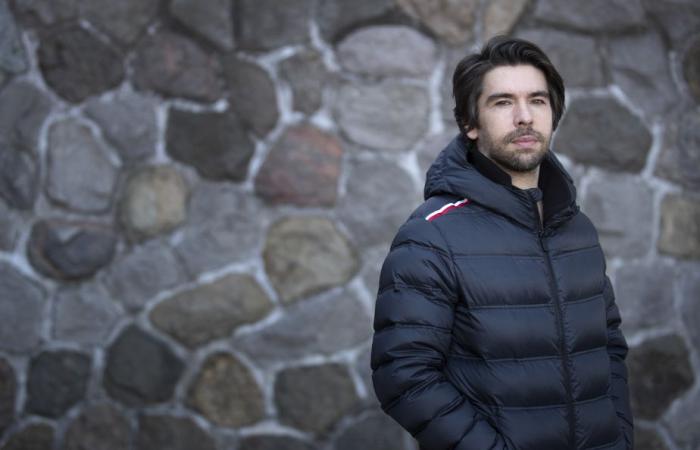Does everyone deserve to be invited on TV? The question is being debated following the heated passage of virilist influencer Julien Bournival to Everyone is talking about it Sunday evening. Despite the criticism, Guy A. Lepage and co-producer Guillaume Lspérance remain convinced that he had his place on the set.
Posted at 7:30 a.m.
“I don’t want to receive people who have committed criminal acts. That’s my limit. But for the rest, I’m against cancel culture, even for people who say things I completely disagree with. That’s not how you move a society forward,” reasons Guy A. Lepage, in an interview with The Press Monday.
To talk about the documentary Alphaswhich is interested in the rise of masculinist ideas on social networks, the team of Everyone is talking about it saw fit to invite at least one of the influencers who participated in the film. Even if the presence of Julien Bournival caused great unease on the set, giving rise to lively exchanges, the production still believes after the fact that it was the right thing to do.
PHOTO MARCO CAMPANOZZI, ARCHIVES LA PRESSE
Guillaume Lspérance, co-producer of Everyone is talking about ite
If we had to do it again, we would do it. I accept the fact that it caused controversy and that it could have made people uncomfortable.
Guillaume Lspérance, co-producer of the show
“It’s part of my role as a producer to spark debate, and it’s above all part of the DNA of Everyone is talking about it for 20 years,” continues Guillaume Lspérance, co-producer of the show.
Balancing the debate
On social networks, Julien Bournival promotes a return to traditional values. HAS Everyone is talking about ithe notably tried to put into perspective certain comments made by misogynist influencer Andrew Tate. Julien Bournival was accompanied on Sunday evening by journalist Simon Coutu, who signed this uncompromising documentary on the masculinist movement.

PHOTO KARL JESSY, TAKEN FROM THE FACEBOOK PAGE OF EVERYONE TALKING ABOUT IT
The virilist influencer Julien Bournival, the journalist Simon Coutu and the professor of political science at UQAM Francis Dupuis-Déri
Joël McGuirk, an influencer with very anti-feminist ideas who we could also see Monday evening on Télé-Québec in Alphasalso had to be with them on the board. He was disinvited, the team having preferred that professor and essayist Francis Dupuis-Déri, who studied masculinist movements and who is very critical of them, join the discussion.
“As early as Friday, when we announced the guests, I had my doubts. I thought it was perhaps not balanced enough. We continued to discuss it with the team all day Saturday, we heard the criticism, and on Sunday morning, we decided to invite Francis Dupuis-Déri instead to better balance the point,” explains Guillaume Lspérance , who indicates that he has not received any pressure from -.
“It’s a privilege”
Sexologist Anne-Marie Ménard, who has nearly 85,000 subscribers on Instagram, is one of those who believe that Julien Bournival should not have appeared live on prime time TV either. She is the instigator of a petition which asks producers to Everyone is talking about it “to review their invitation policy”. By mid-afternoon Monday, nearly 30,000 people had signed it.
“For me, it is a privilege to have a platform in a program as popular as Everyone is talking about it. It’s a way to gain visibility and popularity. By inviting Julien Bournival, we are helping to normalize a discourse that is very violent towards women,” insists Anne-Marie Ménard.
Radicalization specialist David Morin is less sharp. However, he also questions the relevance of inviting someone like Julien Bournival to Everyone is talking about it.
“We’re talking about someone who has less than 8,000 subscribers. It’s very little,” illustrates this professor from the University of Sherbrooke.
By giving a prime-time microphone to someone so marginal, we give them the opportunity to pose as a victim and water down their speech to attract new subscribers.
David Morin, specialist in radicalization
Guillaume Lspérance is not only a producer of Everyone is talking about itbut also the one who produced the documentary Alphas. He is surprised by the extent of the controversy since the weekend and notes a certain drift.
“I have a serious problem with these people who think they are above the fray and who try to dictate what can go on the air or not,” he laments. The minute we silence certain voices, I find that it is not conducive to discussion. In Quebec, unlike France, we are quick to cry boycott or to rebel as soon as the tone rises a little on television. That worries me. »








